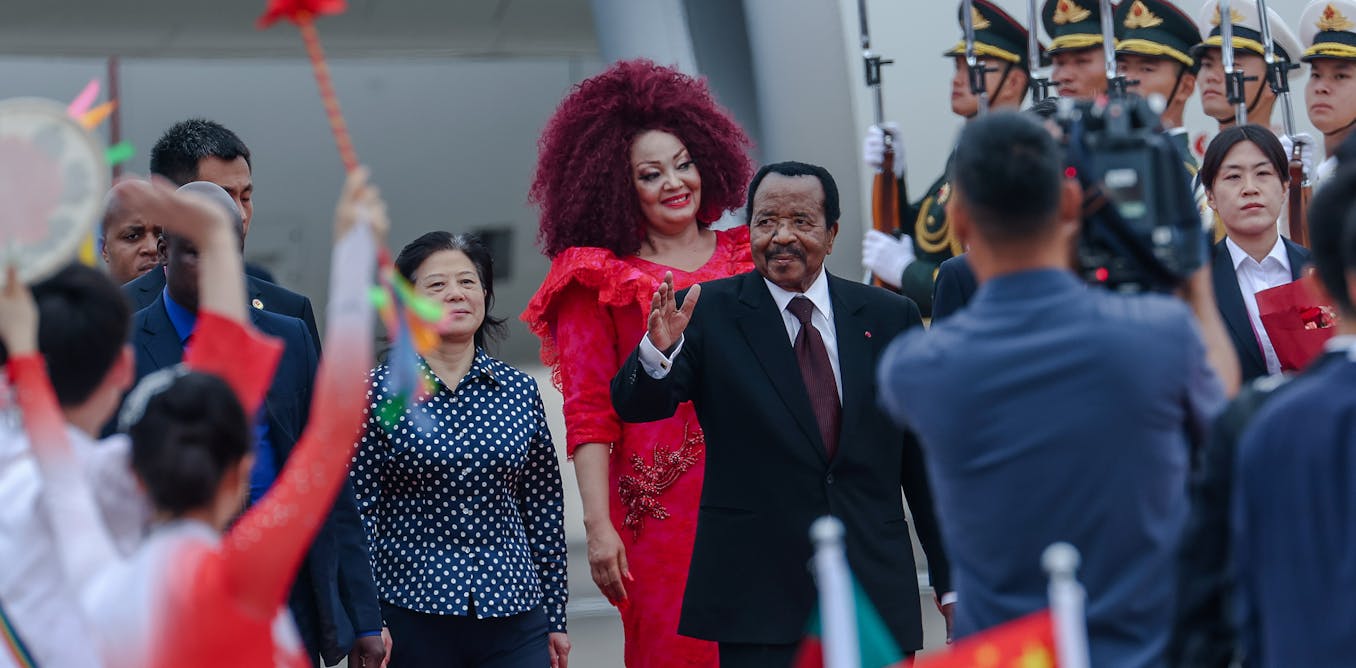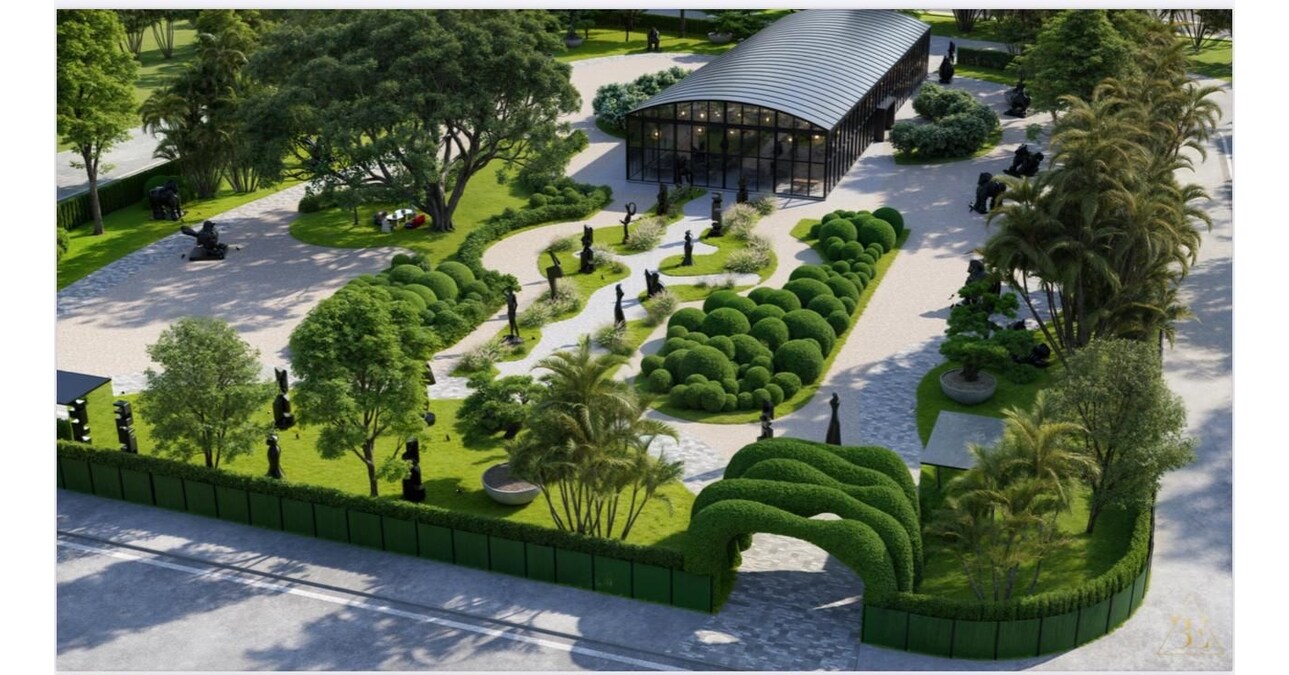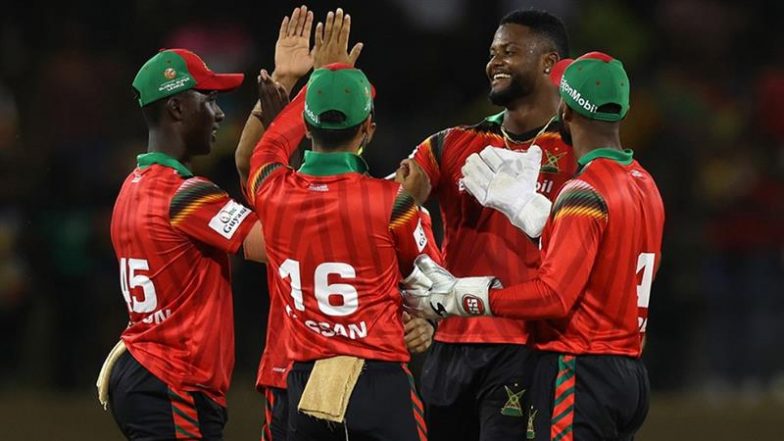Cameroon’s President Paul Biya is 91 years old. He is Africa’s oldest head of state and only one has served longer: President Teodoro Obiang Nguema of neighbouring Equatorial Guinea, who is 82 years old.
Biya has been Cameroon’s president since 1982. Prior to that, he was prime minister from 1975.
In recent weeks there has been growing speculation about the nonagenarian’s health. Some rumours even suggested that he had died. This led the Cameroonian government to issue a statement banning all reports about his health.
These cycles of rumour have recurred whenever Biya has “gone missing” for extended periods of time. Before he arrived at Yaoundé’s international airport on 21 October, Biya was last seen in public on 8 September, when he attended a China-Africa forum in Beijing.
Cameroon has known only two presidents since independence. For 60% of the country’s youth population, Biya is the only president they have known.
Read more:
Paul Biya has been Cameroon’s president for 40 years – and he might win office yet again
The country finds itself in a precarious situation, uncertain about what will happen after Biya, who has ruled with an iron fist.
Long term incumbencies don’t usually end well. Examples across the continent illustrate the high potential for political instability. The most vivid cases include Libya, Tunisia, Sudan, Gabon, Chad and the Democratic Republic of Congo.
For me as an associate professor of international studies and researcher of regime transformation in Africa, Cameroon holds specific interest because of its regime resilience over the decades, when many in the region haven’t fared as well.
My view is that Cameroon will, sooner rather than later, hit an inflection point post-Biya. Cameroon lacks strong constitutional guard rails, so succession is bound to be a very messy affair.
Second, due to years of nepotism and tribalism institutionalised by Biya, there will be heightened potential for regional and ethnic tensions or conflict – even a general breakdown of law and order.
Lastly, the military establishment could well make a move in the name of safeguarding the republic in times of uncertainty.
The legacy
Cameroon is endowed with abundant resources, including oil, gas and timber. It is also strategically located at a crossroads between west and central Africa on the Atlantic coast, an entry point to landlocked inner regions.
Yet, according to the World Food Programme, over 55% of Cameroonians live in poverty and 37.7% are severely impoverished.
The country’s infrastructure is in poor shape. While the Douala port has been modernised and railway regional linkages such as the Douala-Yaoundé lines have been expanded, road and railway infrastructure are barely functional.
According to Transparency International, corruption is endemic in Cameroon. The country ranks 140th out of 180. This is despite official efforts to do something about it.
In 1982 Biya capitalised on the anti-corruption sentiment that had been directed at the Amadou Ahidjo regime. Biya promised an anti-corruption “new deal”. Despite initial progress, by the early 1990s Cameroon was topping the world’s corruption tables.
Critics suggest that Biya has also used his anti-corruption drive to keep his potential competitors in check.
Nepotism and tribalism continue as Biya has established a patron-client state system. For example, the Beti people, who are the president’s ethnic kin, are reported to take up a disproportionate slice of senior positions in government and the military. Yet they account for a small percentage of the population.
This has bred a kleptocratic system matched only by widespread communal resentment.
Read more:
Cameroon: how language plunged a country into deadly conflict with no end in sight
There are other deep fissures in Cameroonian society. Socially, the country became a federated entity at independence in 1960. Two language groups – French and English speaking – came together for a United Republic of Cameroon.
For a while this unity held. But increasing disenchantment with Biya’s regime, especially the marginalisation of the Anglophone south-west, developed into a rebellion in 2016. Thousands of people have been killed and tens of thousands displaced. It has also resulted in an increased crackdown by the central authority.
Today, Cameroon is a fractured society with the south-west calling for increased autonomy and language justice and even self-determination. The creation of the Commission of Bilingualism and Multiculturalism and designating special status to the rebellious regions has done little to quell the crisis.
Regional role
Regionally, Cameroon has been a key partner for the US and France through tackling Boko Haram in the region. The country has been directly affected by the attacks of this Islamist group, which originated in Nigeria and has extended its reign of terror across the region.
The anti-terror campaign has seen a close US-France-Cameroon relationship with military and intelligence strategic cooperation.
Equally Biya can be lauded for having peacefully settled the Bakassi peninsula crisis with Nigeria, a territorial border dispute, thereby averting regional instability.
There are not yet obvious signs that, after Biya, the Franco-Cameroon relationship would come under strain similar to other scenarios in the region.
France has built a steady political and economic relationship with Cameroon, investing heavily in the region, providing political cover to the regime and entering into a defence pact.
This relationship has also benefited many a political and military elite. Barring any monumental development, it is bound to be sustained in the post-Biya era.
Read more:
Cameroon spends 90% of Chinese development loans on its French region: this could deepen the country’s divisions
Fractured political landscape
Biya’s longevity at the helm of Cameroon politics is testament to his ability to mobilise all state resources, power and constitutional levers for his lifetime presidency. He has outmanoeuvred all political competitors.
This has enabled him to avoid the fate of neighbouring countries such as Central African Republic, Niger, Chad and Gabon, where governments have been overthrown by military coups.
In 1992 Biya agreed to a multiparty dispensation. But since then, he has engineered removal of term limits and he is on his seventh term of office.
But in the evening of his years, and in the absence of a designated successor or an elite pact, there is a real possibility that various factions of the Biya regime such as that of Frank Biya, Ngoh Ngoh, Laurent Esso or even the military will jostle and fight for power.
Without a political culture of constitutional constraint, instability seems inevitable. And the south-west rebellion might escalate its military and political pressure for better leverage with whoever comes to power post-Biya.
Whether the next political leadership will be able to set a transformative agenda for socio-political reconciliation and national renewal will be dictated by their ability to strike a grand compromise.







